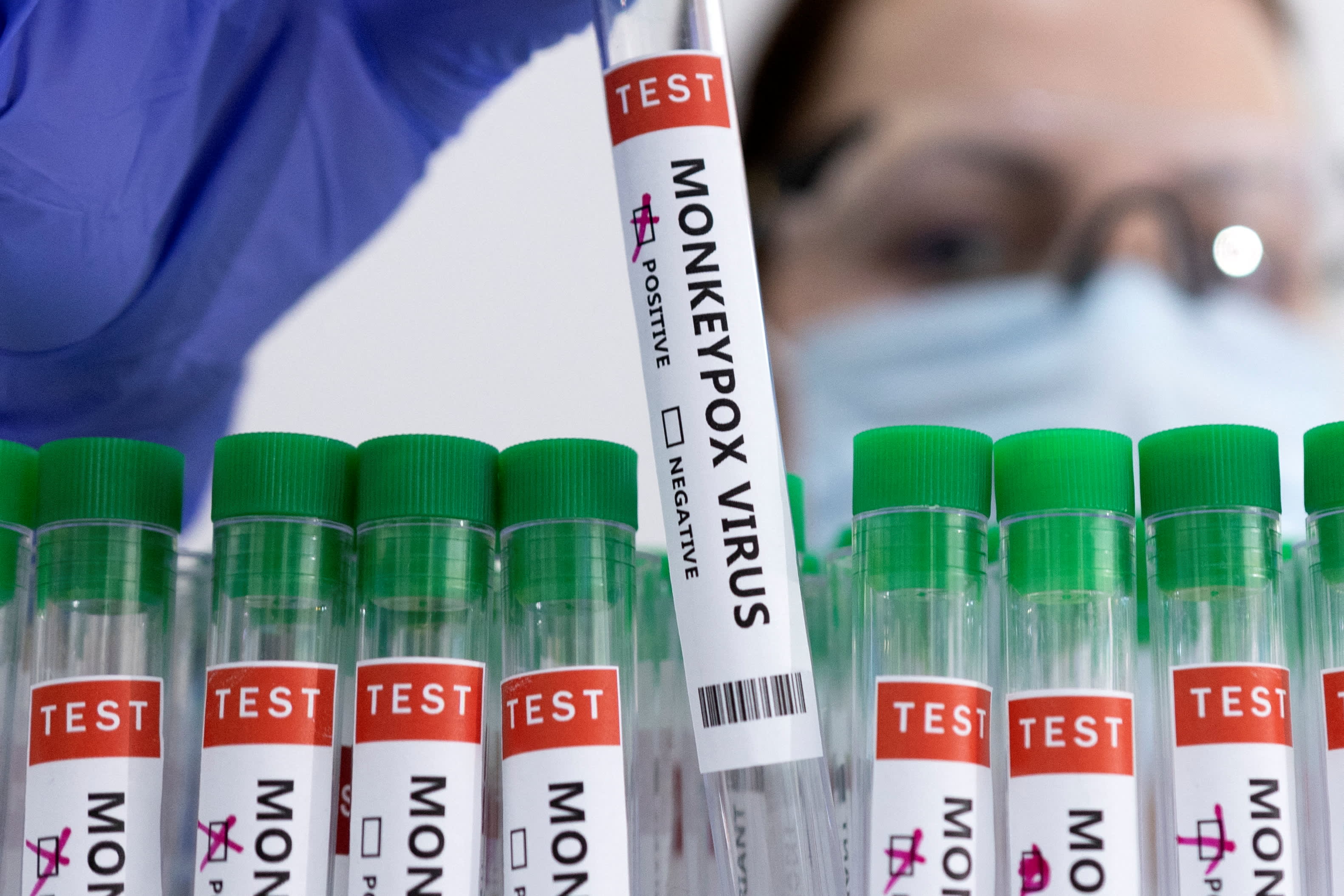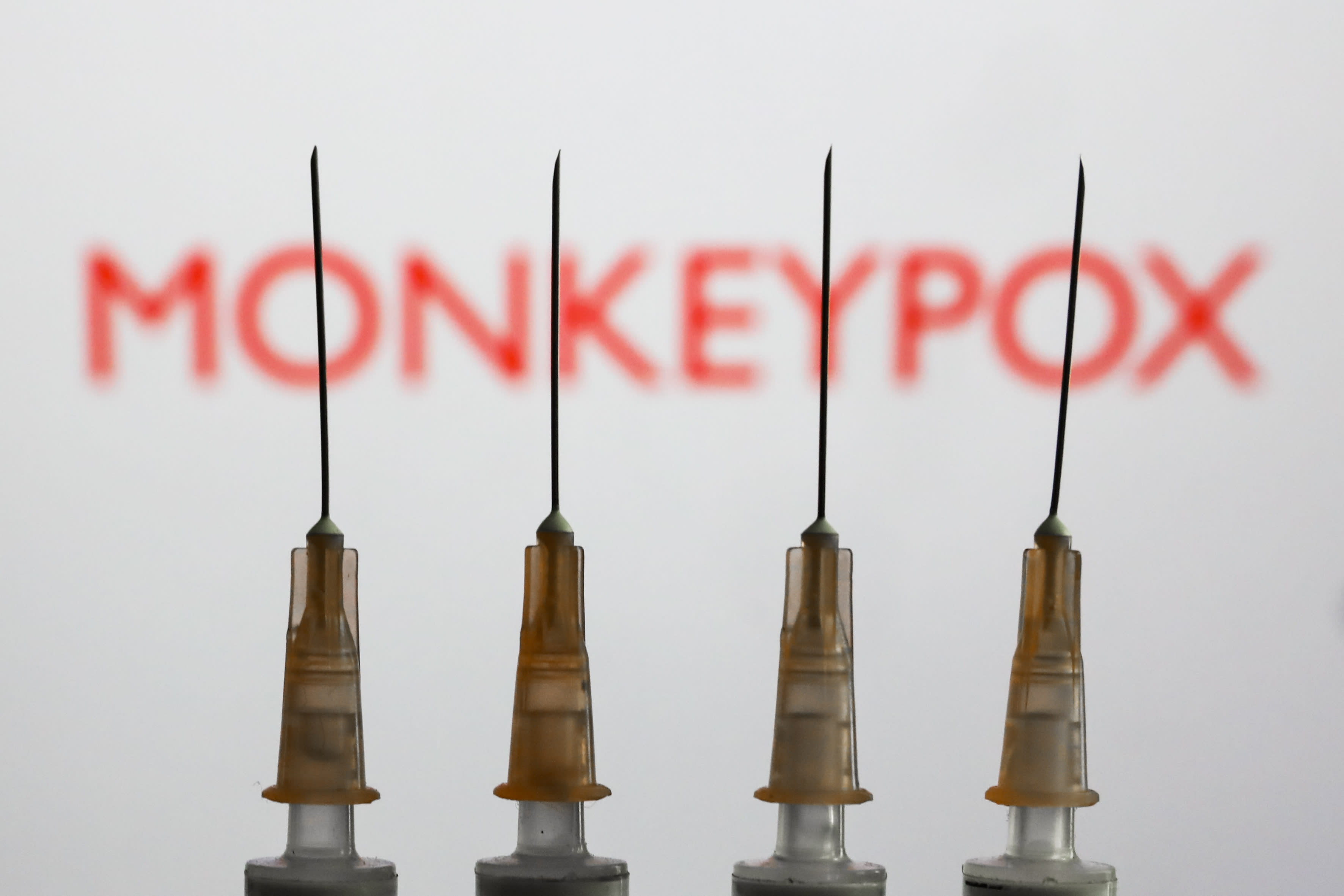New York City now has seven cases of monkeypox, most of them confirmed in the last three days, as CDC officials urge doctors to increase testing for the previously rare virus that's suddenly spreading worldwide.
Meanwhile two prominent infectious disease experts warned Saturday that time was of the essence to stop the spread of the virus, and that the "window is closing" to contain it before it becomes endemic.
The two new NYC cases, reported by the city's health department Friday night, makes for five new cases in the last three days. Monkeypox is now spreading so quickly around the world, top global health officials say they don't know if it's "too late to contain."
Get Tri-state area news and weather forecasts to your inbox. Sign up for NBC New York newsletters.
In a sign that the situation may be more advanced than first understood, the CDC said Friday there appear two be two separate and distinct outbreaks going on outside of Africa, with some virus samples seen in the United States being distinct from the samples seen in the European outbreak.
How Does Monkeypox Spread?
The vast majority of U.S. cases are in men who have sex with men, and many patients have reported international travel. So far, only one confirmed case has an unknown origin. The CDC said that all patients nationwide are recovering, or have already recovered.
Agency officials, in a briefing with reporters, stressed that the public health risk remains low, vaccine stockpiles are ample for now, and that it was "too early to know" if the virus was going to become endemic in the United States.
As of Friday afternoon, the CDC said there were 25 confirmed cases nationwide from the recent outbreak. That's almost triple the count a week prior.
The agency is asking doctors to test more aggressively for monkeypox, even if they think a patient is presenting with symptoms of another sexually transmitted illness.
"They should test for monkeypox even if they think they might have a positive test for a much more common STI," Jennifer McQuiston, deputy director of the CDC's Division of High Consequence Pathogens and Pathology, said on a call with reporters.
Of the first 17 confirmed cases, all 17 had a rash and most had fatigue or chills. A majority had rashes on their arm or chest, though many other spots were affected as well.
Globally, the World Health Organization has identified infections from the current outbreak in at least 12 countries.
The WHO says so far, there is no link between this outbreak and travel to countries where the virus is already endemic.
"We don't really know whether it's too late to contain. What WHO and all member states are trying to do is prevent onward spread," Dr. Rosamund Lewis, the WHO's monkeypox technical lead, said during a news conference in Geneva on Wednesday.
Monkeypox 'Window Closing'
As the virus spreads, those with a background in the history of infectious diseases warn that time is of the essence to contain it.
"The window is CLOSING. If we can't contain now, it means much more work later. Again, #LGBTQ groups do not seem to see the urgency of the moment, rightly worried about stigma, but not interested in throwing down to take care of this outbreak ourselves," Yale epidemiologist and AIDS activist Gregg Gonsalves tweeted Saturday morning.
His peers agreed and called on the LGBTQ community to make a more aggressive effort to fight the spread.
"The window to eliminate monkeypox is closing. LGBTQ groups could use #GayPrideMonth #gaypride2022 events to educate, screen, test & vaccinate… before it’s too late," Celine Gounder, an NYU infectious diseases specialist and former Biden Administration COVID advisor, tweeted in response to Gonsalves.
What Is Monkeypox?
Monkeypox was first discovered in 1958, when outbreaks occurred in colonies of monkeys kept for research -- resulting in its name. (What you need to know about monkeypox.)
The first case in a human was reported in 1970 in the Democratic Republic of the Congo, which still has the majority of infections. Other African countries where it has been found: Cameroon, Central African Republic, Cote d’Ivoire, Democratic Republic of the Congo, Gabon, Liberia, Nigeria, Republic of the Congo and Sierra Leone.
Human symptoms of monkeypox are similar to but milder than the symptoms of smallpox, the CDC says. It presents itself as a flu-like illness accompanied by lymph-node swelling and rash on the face and body.
Monkeypox starts off with fever, headache, muscle aches, and exhaustion. Monkeypox also causes lymph nodes to swell, something that smallpox does not. The incubation period is usually 7−14 days but can range from 5−21 days.
The CDC is urging healthcare providers in the U.S. to be alert for patients who have rashes consistent with monkeypox, regardless of whether they have traveled or have specific risks for monkeypox. See more information from the travel notice here.



